Joe Gorman is a journalist and author. His first book, The Death and Life of Australian Soccer, was hailed as ‘one of the best and most important written on Australian sport’ by The Age, and long-listed for the 2017 Walkley Book Award. With the PFA, Joe will explore various issues impacting Australian football.
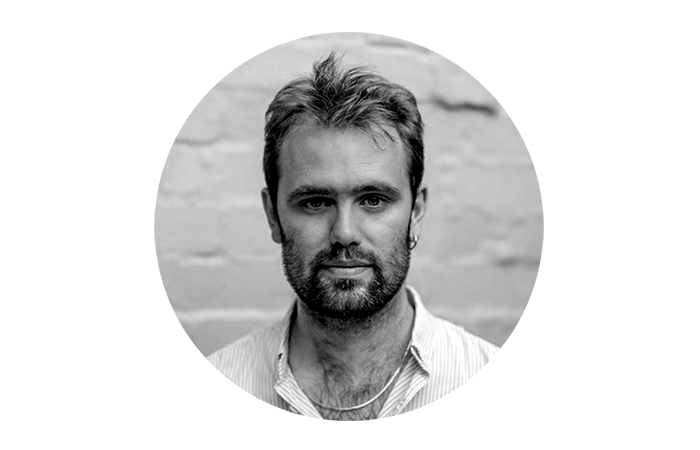
Words by Joe Gorman
Miloš Degenek sat wide-eyed in a small grandstand in southwest Sydney, wrapped in his favourite Red Star Belgrade jersey. Around him were red flares and smoke and chants in Serbian. On the field, Red Star was playing the first match of its Australian tour against his junior club, Bonnyrigg White Eagles.
Most people in the crowd of 6000 could trace their migration story back to the period after World War II. Others, including six-year old Miloš and his family, had only recently settled in Australia after fleeing the Yugoslav wars in the 1990s. On this particular night in January 2001, generations of immigrants from the former Yugoslavia were united in awe of this famous old European club.
Unsurprisingly, Red Star beat Bonnyrigg 3–0, with Serbian striker Goran Drulić and Slovenian midfielder Milenko Ačimovič the star attractions. But the result, reported the Sydney Morning Herald, “was less important than the occasion.”
In the Hollywood version of Degenek’s story, he went to bed that night promising himself that he would one day play for Red Star. He dreamed of fans chanting his name at the Marakana in Belgrade. He imagined winning titles with the club, and helping his family re-establish their life in Serbia.
In reality, Degenek admits, the experience was more surreal than it was inspirational. He loved football, of course, but he was also an immigrant kid still coming to terms with life in a new country and the trauma of leaving his war-torn homeland. Just being able to watch his favourite team play in Sydney was enough to satisfy his imagination.
Twenty years on and Degenek has made more than 100 appearances for Red Star, cementing his position as a key player in defence. The club is on the cusp of taking out a fourth consecutive title in the Serbian SuperLiga, and one win away from qualifying for the Serbian Cup final.
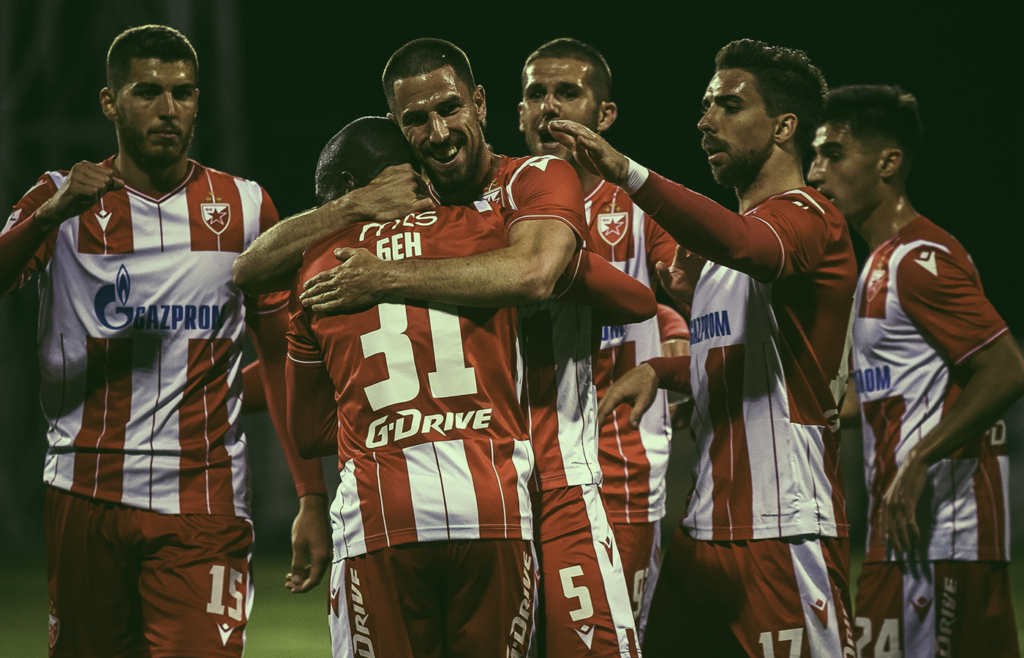
Since Degenek joined Red Star in 2018, he has played in the UEFA Champions League and the Europa League, and become an established member of the Australian national team. He is coached at Red Star by Dejan Stanković, a legend of both club and country. What’s more, Degenek is surrounded by family: his parents and brother both live in Serbia, and last year he married a local woman.
“Now we’re expecting a little baby, so life has turned out better than expected,” he says. “Probably my life is the best it’s ever been: I’m married and I’m waiting for a kid, my brother’s waiting for a little baby as well. My wife’s parents are healthy, my parents are healthy. That’s all I can ask for. I’m doing the thing that I love and I’m helping everyone else around me. Things are pretty perfect, thank God.”
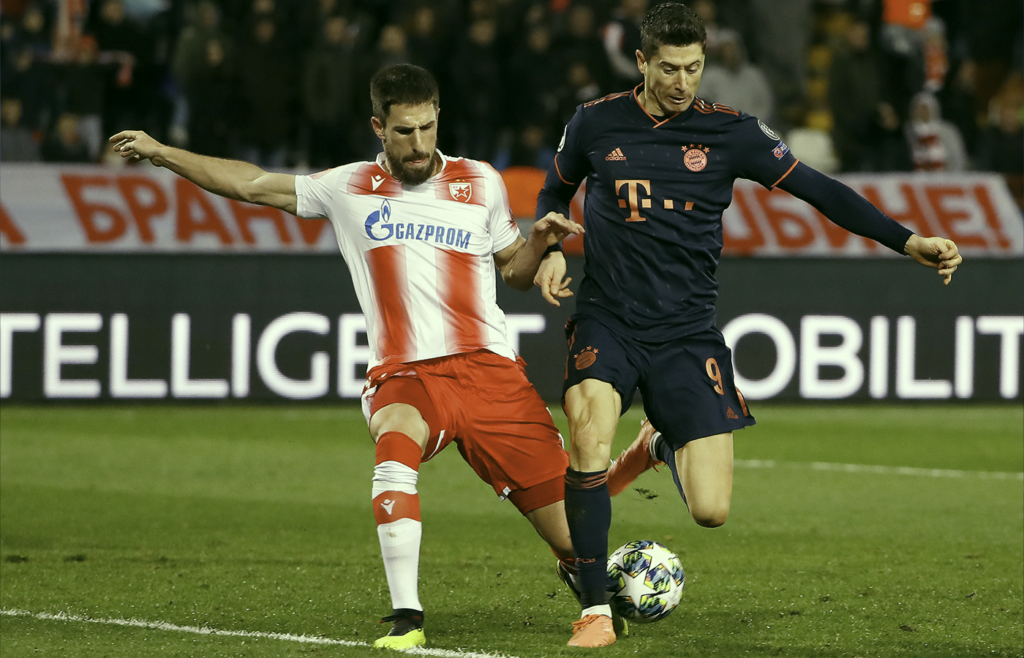
Born in the Croatian city of Knin in 1994, Degenek’s childhood was upended by conflict. His family was forced to flee twice in the 1990s: first from Croatia during Operation Storm, and then from Serbia as NATO bombed the country. Now, though, Degenek is adamant that life in Serbia is about as normal as he could hope for.
“It’s one thing that a lot of people in Australia don’t understand – the war is over,” says Degenek. “There’s no more war, trust me. There’s no more hate here. In Belgrade, the capital of Serbia, there’s hundreds of cars from Zagreb, from Split, from everywhere in Croatia. Not one car gets scratched. Not one car gets damaged. There’s no verbal abuse to anyone.
“Yet when I go to Australia, there’s a lot of hate, and I don’t understand why. Those people left when the war was on, and they still think: I hate the Cros, the Cros hate the Serbs, we all hate the Bosnians and the Bosnians hate all of us. That’s wrong; there’s no hate here. It’s all one, we all speak the same language. It’s normal here.”
Except, perhaps, for the football. The dissolution of Yugoslavia brought an end to one of the strongest leagues in Europe, and the big clubs such as Dinamo Zagreb in Croatia and Red Star Belgrade in Serbia have more or less dominated their respective national leagues ever since.
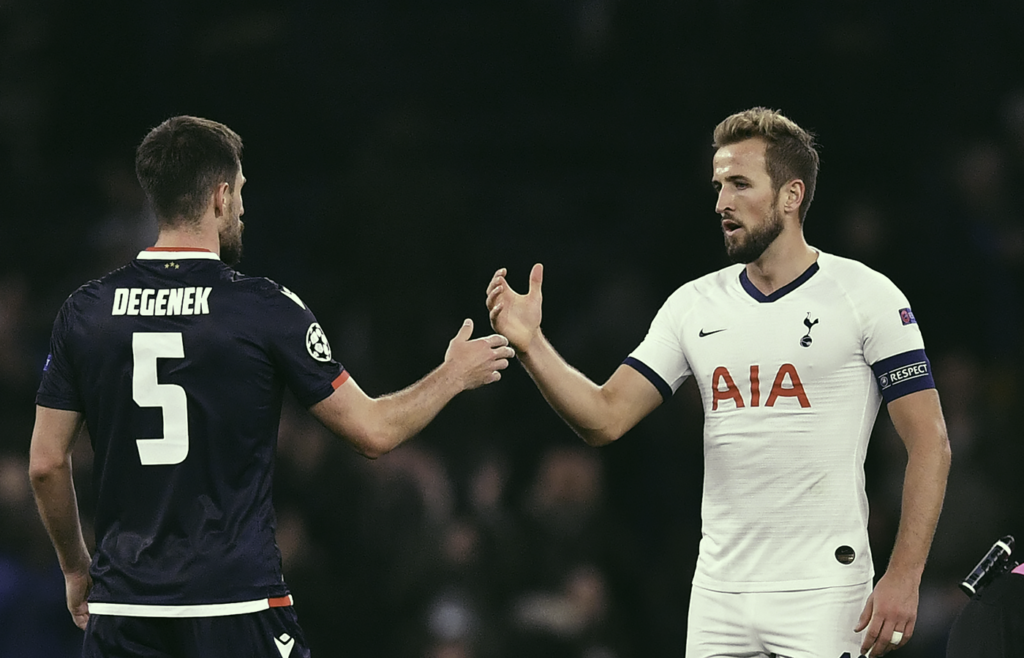
Indeed, such is Red Star’s command of Serbian football that the club has won 19 consecutive games and remain unbeaten after 31 league matches this season. And while Degenek is aware that the SuperLiga is not the most challenging competition, he is content in the knowledge that he is helping to rebuild the prestige of his boyhood club.
“When you’re chasing records, you have to be 110 per cent into every game,” says Degenek. “If you want to be the best, if you want to get written into record books as one of the great teams, every game we win there’s a new record to crack. We want to score 100-plus goals in the league, we want to get to 100-plus points, we want to go 20-odd games unbeaten. We’ve gone more than 500 days without losing a game at home. These records keep you motivated to stay on top.”
Over the past 15 years, as the number of match minutes Australians have played in European competition has declined, Degenek has become almost unique among his compatriots abroad. Not only does he play for his favourite club – which very few Australians get to experience – he is also playing regularly in a variety of challenging environments.
In the Champions League, Red Star have played against Bayern Munich, Liverpool, Paris Saint-Germain, Tottenham, Napoli and Olympiacos. In Degenek’s milestone 100th game earlier this year, Red Star drew 2–2 with AC Milan at home in Belgrade in the Europa League Round of 32. It was, according to Degenek, “the pinnacle” in a career that has taken him from Germany to Japan to Serbia, with a brief stint in Saudi Arabia along the way.
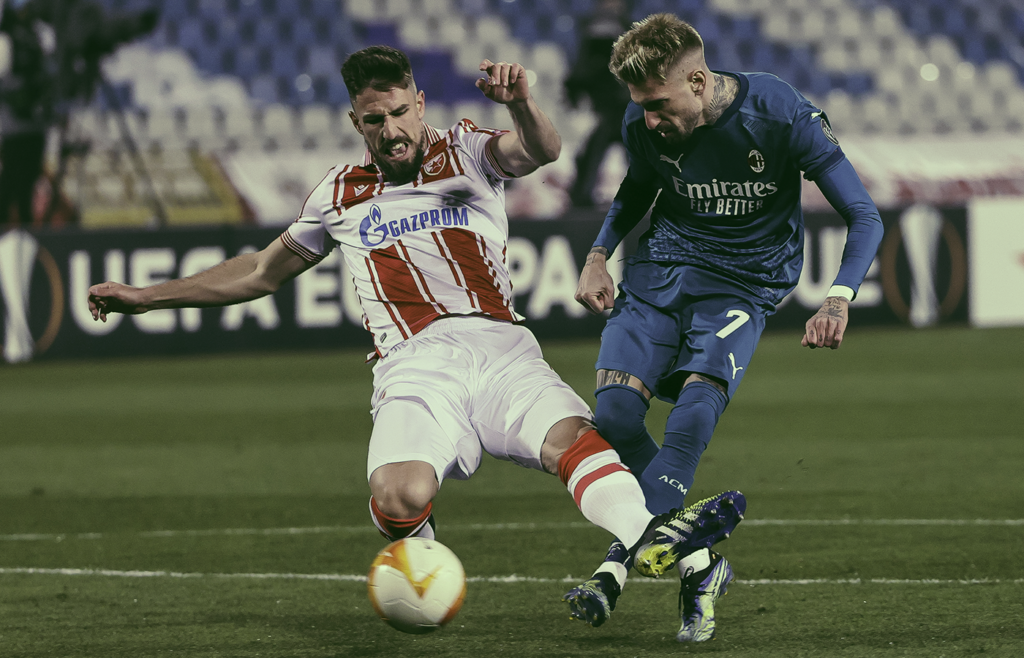
“A lot of Aussie players just want to go overseas, and whatever happens, happens,” says Degenek. “But life’s not like that in Europe. I know from experience – I left Australia when I was 17 and I had success, thank God. But once you’re here, you have to play.
“People may say Serbia is not the best league in Europe. I say, ‘yes, I agree.’ But I’ve played two Champions League campaigns, two Europa League campaigns, I’ve played 100-plus games for the club and I’m playing every week. And I’m playing at a decent level.”
Now, after more than 500 days away from the Australian national team, Degenek is itching to get back in camp with his teammates for the World Cup qualifiers in June. Representing Australia, he says, “is one thing I’ve been missing a lot, and it’s something I really, really need. That environment, with the boys, is like a family – a group of brothers.”
But he knows that selection for the Socceroos hinges upon continued match minutes in Europe. “If I’m playing regularly here,” he says, “I’m going to help Australia qualify for a World Cup.”
Photos: Getty Images
Read more articles from Joe Gorman:
📰 The Long Read by Joe Gorman: Australian football’s Indigenous engagement







